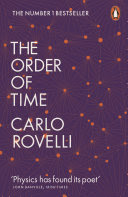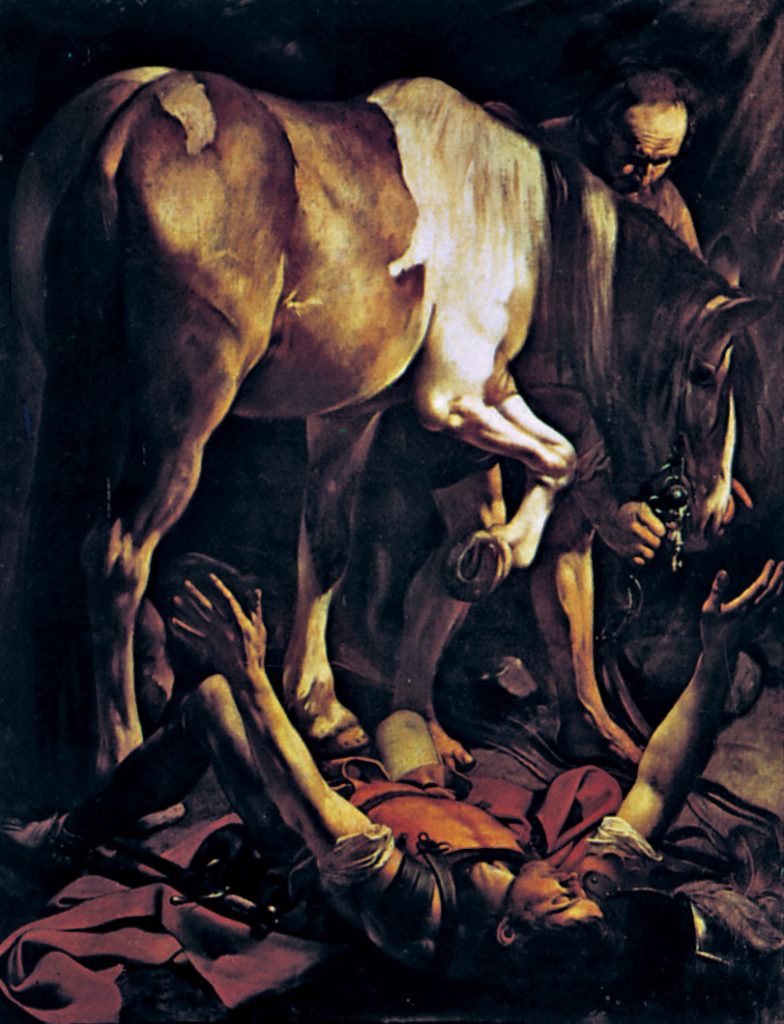| Acts 9: 1 – 9 A paradigm shift, as described by American physicist and philosopher Thomas Kuhn, applies to revolutions in scientific perspective, but, more broadly, a paradigm shift is a fundamental change in approach and underlying assumptions. I have recently re-read Carlo Rovelli’s book ‘The Order of Time,’ which I first read when the book was published in 2018. Rovelli dismantles all conventional notions of time. Time does not exist evenly throughout the universe…indeed, it doesn’t really exist at all.  Let’s give Rovelli a chance to explain: “The variable “time” is one of many variables that describe the world. It is one of the variables of the gravitational field: at our scale, we do not register quantum fluctuations. In our everyday life we move at low speeds in relation to the speed of light and so we do not perceive the discrepancies between the different proper times of different clocks, and the differences in speed at which time passes at different distances from mass are too small for us to distinguish. In the end, therefore, instead of many possible times, we can speak only of a single time: the time of our experience—uniform, universal, and ordered. This is the approximation of an approximation of an approximation of a description of the world made from our particular perspective as human beings who are dependent on the growth of entropy, anchored to the flowing of time. We, for whom, as Ecclesiastes has it, ‘there is a time to be born and a time to die’.” Pg. 197 Rovelli’s argument is dense, if short. You can perhaps see why I had to re-read this book. It is now back on my bookshelf, from where, in a couple of years, I’ll probably pluck it down for a third go. There is no such thing as time, only perception, only perceivers…perhaps even a Great Perceiver, who, by virtue of perceiving, saves us from the experience of everything happening at once. This is a paradigm shift…a fundamental change in underlying assumptions. St. Paul undergoes an emotional, theological, perspectival and personal paradigm shift on the Damascus Road. We call it ‘the Conversion of St. Paul.’ There is a flash of light and a voice posing a question. Saul is knocked off his horse (as great artists depict the event). His traveling companions are stunned, and haul Saul (he is still called Saul) off to Damascus, where, “for three days he was without sight, and neither ate nor drank.” This is a grand paradigm shift such as most of us do not undergo, for which we should be grateful. It can’t be pleasant to have all of your assumptions pulled up and cast aside like a weed all with one thrust of the trowel. Saul, once he is called Paul, goes off to Arabia for some considerable time to try to make sense out of what has happened to him. For most of us, conversions come in small increments, like mini-strokes. They do not disconcert us all-of-a-moment. We might not notice them at all. Yet, perspectives change. We may look back in astonishment, or perhaps horror, at viewpoints we once held. We are different people now then we once were. The future is something different than ever imagined. God spoke to Saul in a rush, and quite spectacularly. For those of us who enjoy the privilege of some sense of normal, some sense of continuity, even in a world much changed by the arrival of a simple viral organism; what questions might be posed to us? Saul has been persecuting a newly emergent sect of Judaism with the very best of intentions, and discovers he has been wrong. What have you been wrong about…less dramatically, surely…but nevertheless inviting a change in perspective? I have heard rosy optimism about how we will venture the world once the vaccine for COVID-19 arrives, and I am not persuaded. At least that rosy optimism is no sure bet. A different world will require a good deal of work, and a great many repeated small paradigm shifts. Grace and peace, The Reverend Canon George F. Woodward III FROM THE LITANY OF ST. AIDAN “Then I heard a voice in heaven saying, Whom shall I send And who will go for us? Then said I, Here am I. Send me. I will go, Lord, if You lead me: I will hold Your people in my heart. Deeper in my heart I will hear Your call I will cry for the desert Until my eyes run with tears. If I open my eyes to the world around me, If I open my heart to the people That surround me, Then I feel pain and brokenness, I see suffering and injustice. Let the wind of Your Spirit blow And reverse the works of darkness And Your fire will cover the earth. Amen.” Previous Reflections may be found on the parish website StPaulSMA.com under ‘Blogs’ here. YouTube postings are available here. Previous editions of THE EPISTLE can be found here. |

| St. Paul’s Anglican Church Calzada del Cardo, 6 Centro 37700, San Miguel de Allende, Mexico 415.121.3424 www.StPaulSMA.com |

